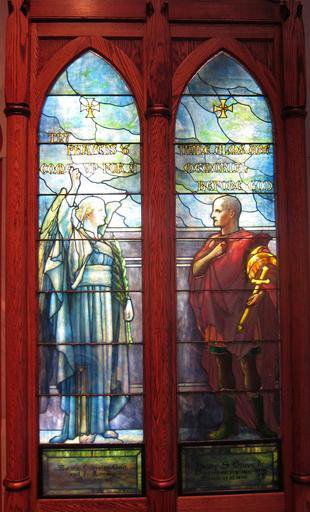Thoughts for the Day
Friday, 4th September 2020: God speaks to the unexpected
Calling Acts Chapter 10 Gentiles Disciples
Reading : Verses from Acts, Chapter 10

In Caesarea there was a man named Cornelius, a centurion of the Italian Cohort, as it was called. He was a devout man who feared God with all his household; he gave alms generously to the people and prayed constantly to God.
One afternoon at about three o'clock he had a vision in which he clearly saw an angel of God coming in and saying to him, 'Cornelius.' He stared at him in terror and said, 'What is it, Lord?' He answered, 'Your prayers and your alms have ascended as a memorial before God. Now send men to Joppa for a certain Simon who is called Peter, he is lodging with Simon, a tanner, whose house is by the seaside.'
When the angel who spoke to him had left, he called two of his slaves and a devout soldier from the ranks of those who served him, and after telling them everything, he sent them to Joppa.
(New Revised Standard Version)
Thoughts
Cornelius is a Roman soldier, a centurion, apparently from Italy. As such he would have been accustomed to the Roman gods of Jupiter, Mars and all the others, including the Emperor. He would have been hated by Jews for serving their oppressors., but we are told that he was a supporter of the God of Israel. He would have called a "God-fearer" for his support, though he was not prepared to accept Judaism whole-heartedly with all its rules as well as circumcision.
In the previous Chapter of Acts we have seen Peter's work in Joppa, where he healed Dorcas. But here, amazingly, we find God sending his messenger to a Gentile in a vision (which was vivid for he later says the angel was in 'dazzling clothes'), with a message for Peter to teach him.
As Christians we should accept that God will call us and also teach us in unexpected ways - through those outside the church, from what we read, and via other christians. When we pray we can expect God to answer, but we must also expect the unexpected!
Prayer
Lord God,
we know that You speak to us,
and that You continually call us
to do Your work in the world.
Help us to expect the unexpected
in how You speak to us.
and teach us be as quick to obey
as were both Cornelius and Peter.
Amen.